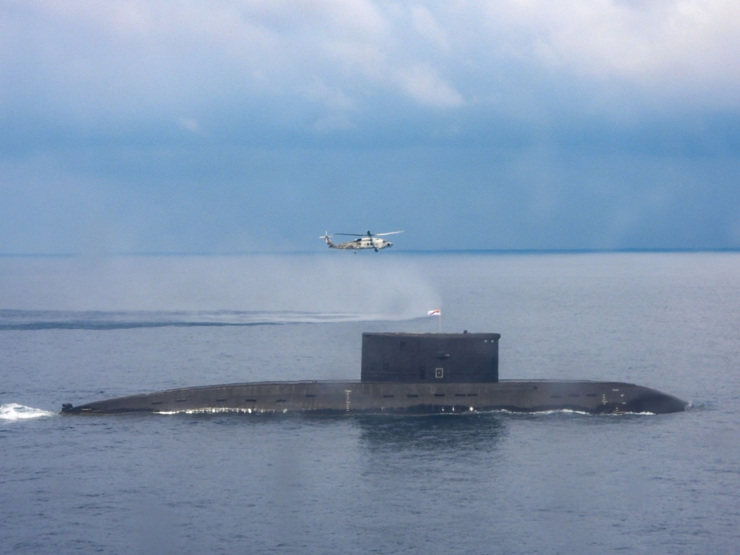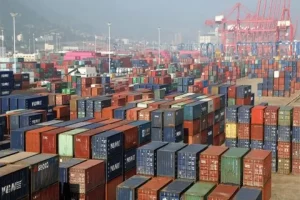India is bonding fast and furious, with foreign countries, by building partnerships but avoiding alliances. If anyone thought that India was heading towards an Asian NATO through the Indo-Pacific Quad, then kindly think again.
While a partnership with the quartet-India plus Australia, Japan and the United States thrown in, New Delhi is also showing nuanced awareness of a rapidly emerging multipolar world, where American power remains strong but in steep decline. Plus, the change of administration—from a firmly committed Donald Trump to India's geopolitical relevance to a Biden administration which is sending mixed signals—including sending warships into India’s Exclusive Economic Zone without informing New Delhi or going soft on India's most wanted – Dawood Ibrahim.
It is therefore significant that after action-oriented movement on the Quad along with military exercises with partner countries, India without involving Washington, is cementing ties with France and Australia as a trilateral group. Unsurprisingly, stressing upon the reality of a changing world, External Affairs Minister S. Jaishankar said during his intervention during the ongoing Raisina Dialogue that the world is moving towards "multipolarity, rebalancing & pluri-lateralism. Shared values and comforts are creating new combinations."
Jaishankar speaks at the conference
The India-France-Australia Combo
Jaishankar opened up about the unfolding of a new partnership between India, France and Australia. He said that India will not get confined between the Malacca Strait and Gulf of Aden, but will also work with countries like France and Australia to ensure an open and inclusive Indo-Pacific. He was speaking at the Observer Research Foundation's (ORF) virtual conference along with French Foreign Minister Jean-Yves Le Drian and Australian Foreign Minister Marise Payne.
Jaishankar later tweeted from his handle, @DrSJaishankar: "Indo-Pacific is a strong message. India will not be boxed between Malacca Strait and the Gulf of Aden. Our interests & activities go way beyond. Australia and France are part of that canvas." In another threaded tweet he said: "India-France-Australia: From maritime security to blue economy; HADR to emerging technologies; resilient supply chains to counter-terrorism; sustainability to connectivity. And to sports and education. Coming together for global, regional & national benefit."
At the heart of India's inclinations to forge ties simultaneously with rival nations is the deeply ingrained concept of "strategic autonomy"—of practicing an independent multi-vectored diplomacy which New Delhi can afford after becoming a full-fledged nuclear power after the 1998 Shakti series of nuclear tests.
India and the Quad
In tune with "strategic autonomy" doctrine, Jaishankar also took the opportunity to highlight that India was an independent country to choose its groupings. Jaishankar was addressing Chinese criticism and Russian concern over India becoming part of a strategic four-member group in the vast Indo-Pacific region. He said that no country can have a veto on India’s participation in groupings such as the Quadrilateral Security Dialogue, better known as the Quad.
Recently, Russian Foreign Minister Sergei Lavrov, and even the Russian ambassador to India Nikolay Kudashev, had referred to the Quad as the "Asian NATO". Earlier this month, talking to the media in New Delhi, Lavrov had said: "We believe that this (military alliance) is counterproductive and we are interested in inclusive cooperation that is for something and not against something."
Allaying Russian concerns, a country with which India has strong historical and military ties, Jaishankar said that the Quad as a group has discussed ten subjects which range from vaccine collaboration, higher education and student mobility to climate action, Humanitarian Assistance and Disaster Relief to technology, resilient supply chains and semiconductors to disinformation, counterterrorism and maritime security.
It would also not have escaped Moscow's attention that Jaishankar has been batting for a giant trans-Eurasian International North South Transport Corridor (INSTC) where Russia and Iran are India's key partners. Last month Jaishankar bull horned the integration of the Chabahar route, a gateway to Afghanistan via Iran with the traditional INSTC route which was now mutating to include even faraway Armenia in the Caucasian heartland.
Addressing China Indirectly
Jaishankar also addressed China in the panel discussion. Talking about the Quad, he said: “The idea that somehow because we come together, there is some sort of threat or messaging to others – I think people need to get over this. “Using words like ‘Asian NATO’ etc is a mind-game which people are playing." He emphasised that the Quad is not an “Asian NATO” and India never harboured a “NATO mentality”. On the contrary, Jaishankar urged countries to come together to form coalitions in the changing global order.
The communist giant has been openly critical of the Quad and has on several occasions tried to browbeat member countries about the group. Last year around the time of the Malabar maritime exercise, China's Foreign Minister, Wang Yi, had called the grouping an “Indo-Pacific NATO". China has gone to the extent of saying that it is a security risk and would "severely undermine regional security". China has also accused India of joining forces with the US with a view to undermining Chinese influence in Asia.
A Trilateral Point of View
The foreign ministers of the three nations underscored the need for democracies to work together in critical times. Both – Le Drian and Payne said that France and Australia have respectively fine-tuned their foreign policies to collaborate better with India in fields like terror financing, maritime security and illegal fishing.
Payne said that it is important the three countries work together in critical times for vaccine distribution and alleviating the pandemic-induced economic distress. She added that "strong democracies like ours" have the capacity to respond to pressures that exist on regional multilateral institutions.
Le Drian too waved off fears about the three countries joining hands. He said that free movement and security of trade in the Indo-Pacific is important to Paris, adding that owing to the presence of two million French citizens, France is naturally interested in the Indo-Pacific region.
The strategic link-up of the three countries is happening at a fast pace. They held their first talks last year to discuss geostrategic challenges and cooperation in the Indo-Pacific, followed by another meet in February this year. This online platform at India's premier meet on geopolitics and geoeconomics facilitated the foreign ministers of the three different geographies to come together once again.




















